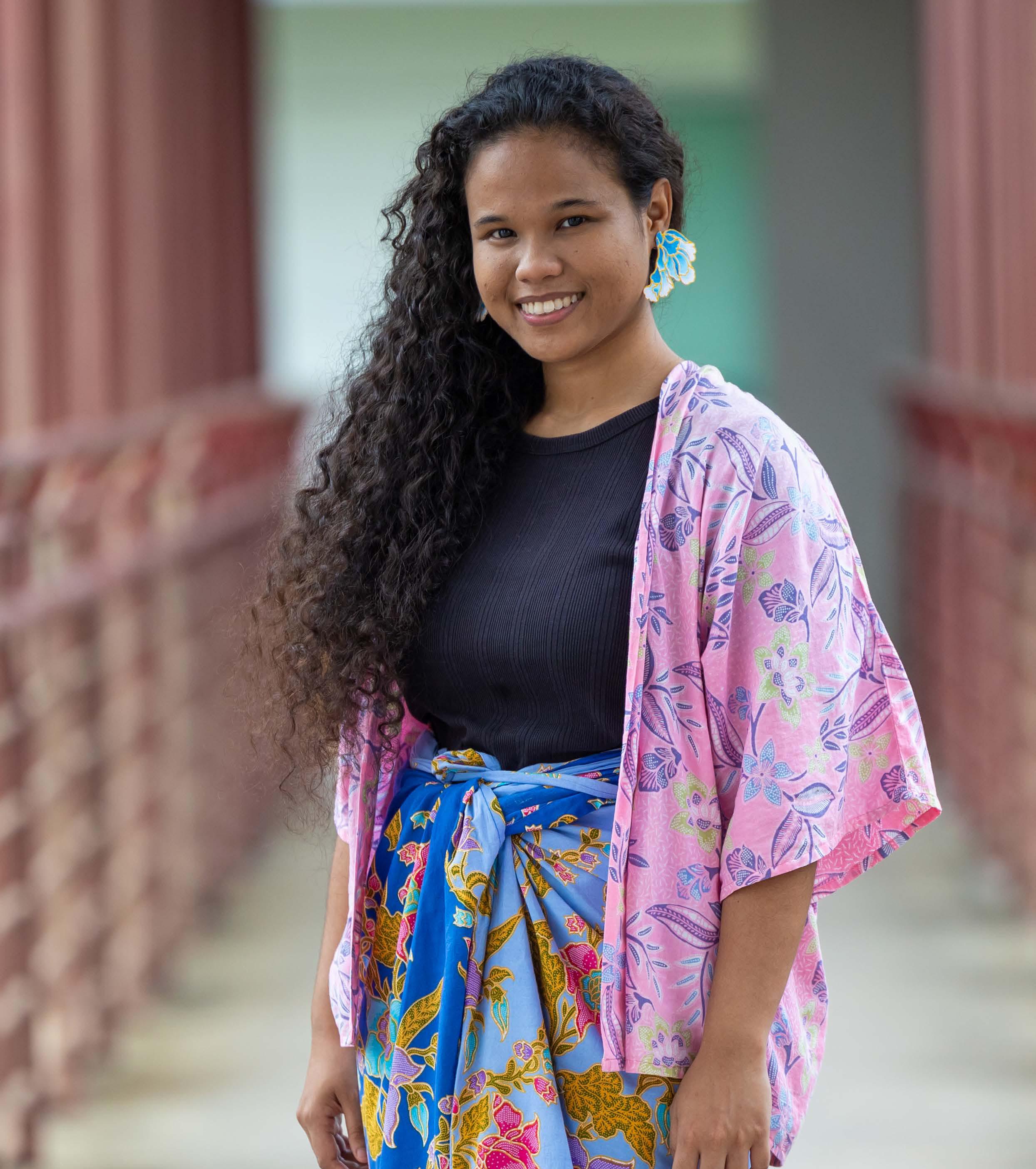
Inspired by her father, Nuryanee set her sights on becoming an entrepreneur from a young age. Now the co-founder of Commenhers, a textile upcycling company, she aims to use her Diploma in Business Administration and her father’s business insights to reach new heights as an entrepreneur.
The Method to the Motivation
Despite creating several successful businesses from scratch, she witnessed first-hand the hardship her father went through in the process, due to the lack of structured instruction in launching businesses. Seeing these barriers, she felt that a more in-depth education would give her a leg up.
“I’m a more hands-on learner and Singapore Polytechnic’s (SP) exposure-based learning in the Business Administration course appealed to me. It stood out to me for its specialisation in entrepreneurship, where I knew topics such as accountancy, the steps to set up a business, and access to various business models would be covered.”
Maximising Opportunities
During her polytechnic years, Nuryanee did it all. From maintaining stellar grades and staying on the Honours Roll from 2019 to 2022, she also prioritised giving back to the community and held various leadership positions such as the Head of the Community Service Department and the Head of the Humanitarian Department at SP Red Cross in 2020.
She also got her first taste of the business world through pitching competitions and graduated with three wins under her belt.
“I enjoyed taking part in competitions, even the ones where we only made it to the finals. The sense of achievement after overcoming hurdles was the best feeling.”
First Foray into Entrepreneurship
Commenhers was born during an assignment when Nuryanee was tasked with creating an original business concept. After watching a report on how thrift stores had to throw out mouldy clothing during the pandemic, she wanted to fuse her creativity into something meaningful. She then set up an upcycling business that turns textile waste into new products of higher quality.
At first, Nuryanee started small, creating just a few handmade pieces and selling them on Instagram, but her lecturer opened her view on the scalability of her business.
She explained that if the business wanted to generate more revenue, Nuryanee had to think bigger, start delegating the work, find a better business model and invest all available resources into it.
She then took the leap to scale up production by involving beneficiaries, primarily single mothers, housewives or elderly individuals, who handcrafted the products. Starting with a team of eight, the labour force has now expanded to 40 beneficiaries who earn a secondary income by cutting, sewing, and manufacturing the products.
Even after graduating, Nuryanee leveraged SP resources such as the SP Entrepreneurship Centre, also known as SPiNOFF. It acted as an incubator, providing support and the right platform to nurture the business. It was at the centre that Nuryanee and her team gained access to many different panel discussions, workshops, and even had the opportunity to participate in the Singapore Week of Innovation and Technology (SWITCH) festival, where they garnered interest from potential investors and organisations.
Onto Bigger and Better
Commenhers has recently undergone a major transformation, revamping its business model to interact mostly with business-to-business (B2B). To better cater to corporations, Commenhers provides an avenue for big businesses to upcycle their textile waste. Their most recent customer is Decathlon, where Commenhers upcycles materials from old kayaks into products that are sold on the Decathlon website and in stores.
As the business grows, Nuryanee recognises that as a business founded on sustainable principles, all decisions should be environmentally friendly, down to the source of the textile waste.
“We only learnt much later that the supplier we purchased our textile waste from collected it from around Asia, transported it to Africa and then brought it back. This process increases the overall carbon footprint of the materials. If we were to take this textile and upcycle it, would it solve the problem?”
To solve this, the Commenhers team decided to collaborate with local initiatives to get textile waste from Southeast Asia instead.
Motivating Future Alumni
For future alumni looking to start their social enterprises, Nuryanee shares these words of advice.
“Always be mindful of the three pillars of business; feasibility, viability, and sustainability. These will help keep your business running for years to come and set your sights on big goals.”
She also mentions how prioritising the right goals, staying organised and staying true to your motivations will provide the drive to keep the business going.
Ms Nuryanee Anisah
Founder, Commenhers
Diploma in Business Administration, Entrepreneurship/Entrepreneurial Studies, 2022